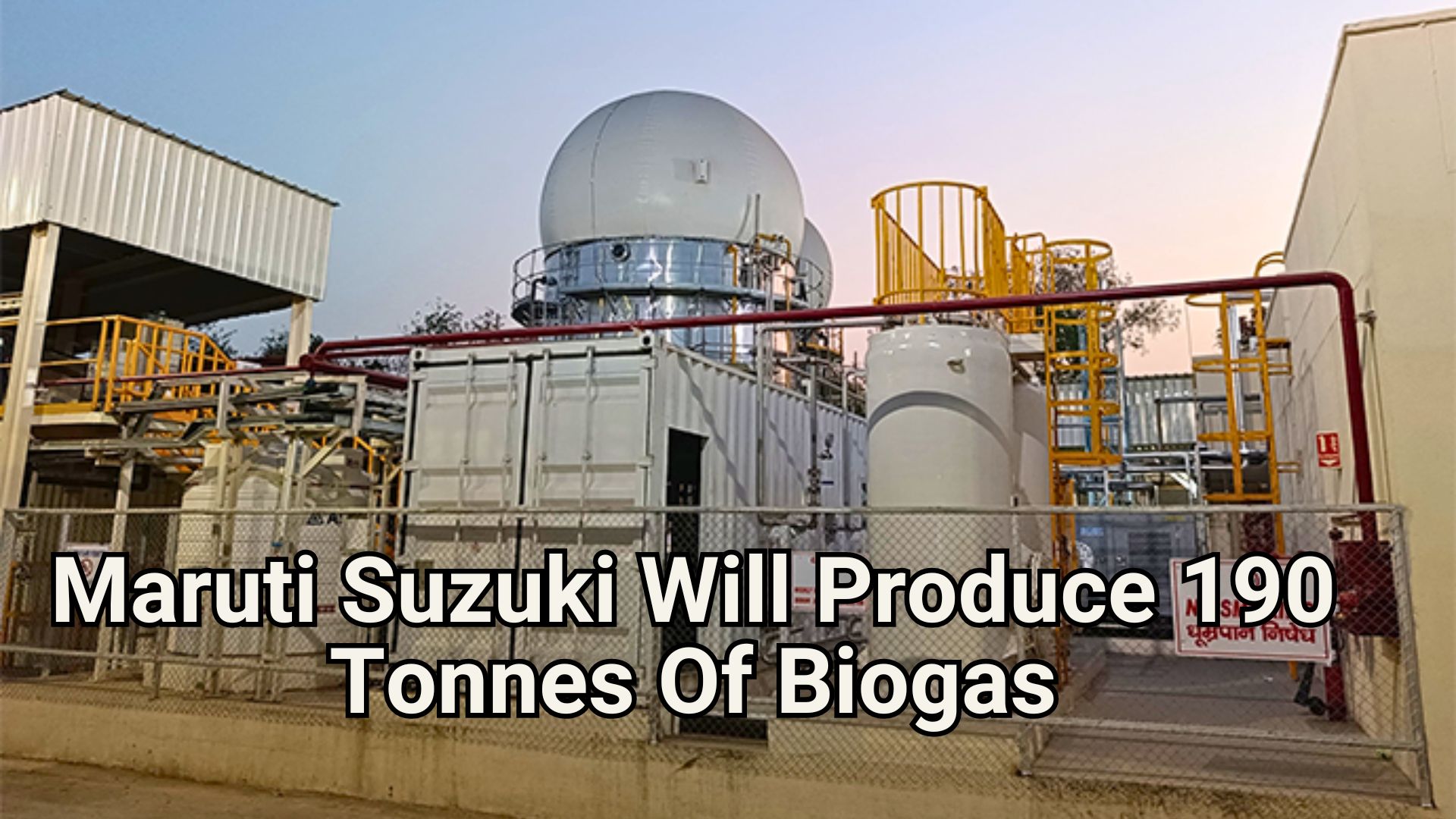Maruti Suzuki India Ltd. (MSIL), has taken a significant step towards sustainability by installing a pilot biogas generation and purification plant at its Manesar Plant in Haryana, India. The plant, which commenced operations in June 2024, is part of Suzuki’s broader commitment to achieving carbon neutrality and promoting renewable energy solutions.
The biogas plant of Maruti Suzuki India Ltd. at the Manesar facility generates biogas from Napier grass, a perennial grass of the Poaceae family, and food waste from the plant canteen. The Napier grass is cultivated on the premises of the Manesar factory, ensuring a sustainable and local source of raw material. The biogas produced is purified and used for cooking in the canteen and in various production processes within the plant. Additionally, the residue from the biogas production process is utilized as organic fertilizer for internal horticulture, promoting a closed-loop system that minimizes waste.
Environmental Impact
The biogas plant is expected to produce approximately 0.2 tonnes of biogas per day, leading to a reduction of around 190 tonnes of CO2 emissions annually. This initiative not only contributes to Suzuki’s carbon neutrality goals but also showcases the practical application of sustainable practices in industrial settings. By utilizing Napier grass and food waste, the plant reduces reliance on fossil fuels and decreases the overall carbon footprint of the Manesar facility.
Suzuki’s Commitment to Renewable Energy
Maruti Suzuki has been at the forefront of promoting renewable energy in India. The company has installed solar panels at various plants and actively utilizes green electricity. Over the next three years, starting from FY2024, Maruti Suzuki plans to invest a total of 4.5 billion rupees (approximately 7.9 billion yen) in renewable energy-related initiatives. This investment underscores the company’s dedication to reducing environmental impact and fostering a sustainable future.
Future Plans
Suzuki’s commitment to renewable energy extends beyond the biogas plant at Manesar. The company is exploring additional renewable energy projects and technologies to further reduce its carbon footprint. By continuously investing in innovative solutions and promoting the use of renewable energy, Suzuki aims to lead the automotive industry towards a greener and more sustainable future.
Conclusion
The commencement of the biogas plant at Maruti Suzuki‘s Manesar facility marks a significant milestone in the company’s journey towards sustainability and carbon neutrality. By harnessing the potential of Napier grass and food waste, the plant not only reduces CO2 emissions but also sets an example for the effective integration of renewable energy solutions in industrial operations. Suzuki’s ongoing commitment to renewable energy and environmental stewardship is a testament to its vision of a carbon-neutral society.

